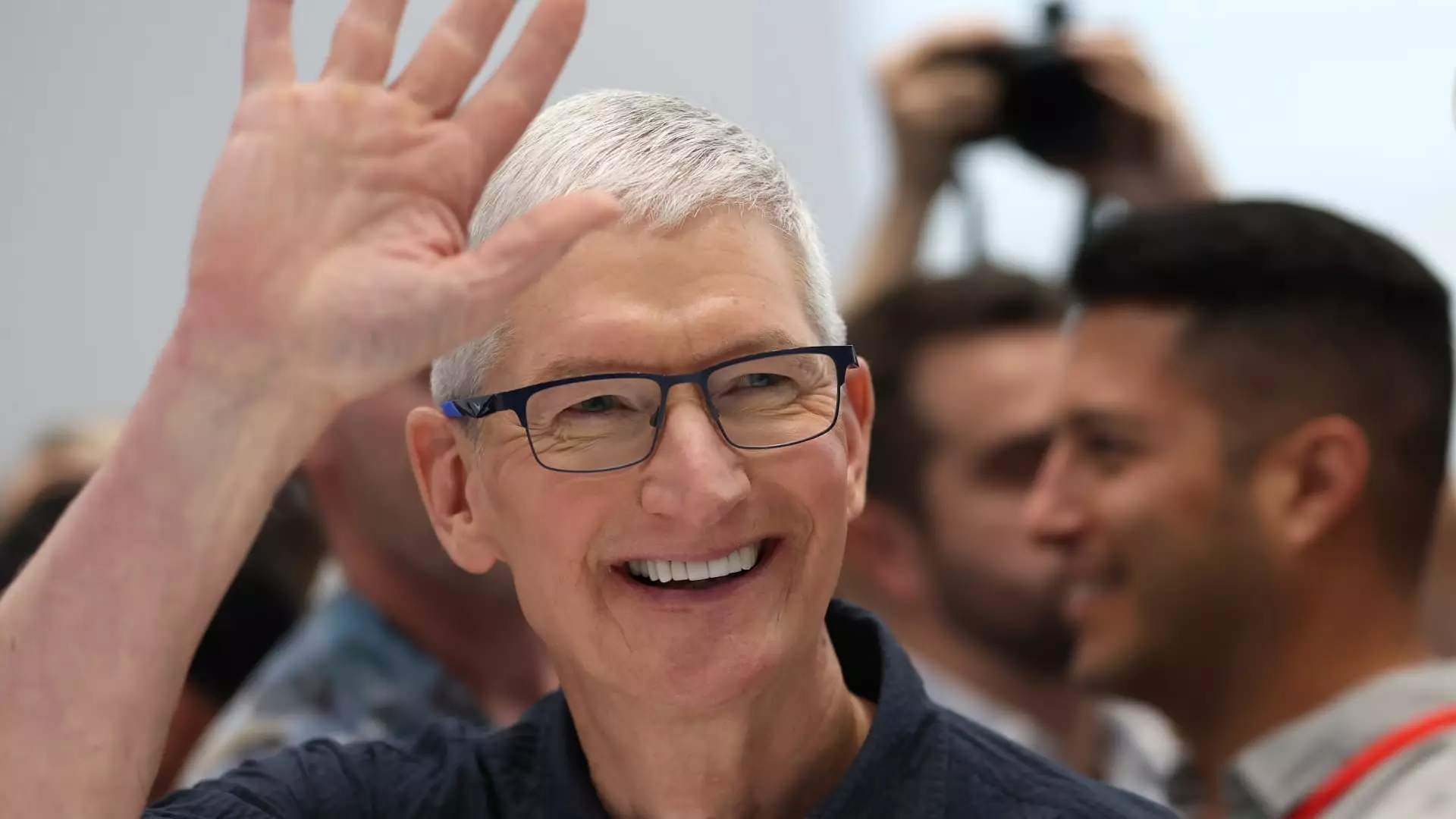Apple Inc. has witnessed a remarkable resurgence in its stock price, reaching an unprecedented high recently despite the swirl of skepticism from analysts regarding the anticipated demand for its new artificial intelligence-enhanced iPhone 16. This elevation in shares can be attributed significantly to newly released market data that indicates robust iPhone sales during the third quarter. Specific figures reveal that iPhone shipments rose by 3.5% year over year, hitting 56 million—a number that surpassed Wall Street’s projections of 50 million. Such outcomes not only signify strong consumer interest but also translate to a potential revenue increase ranging from $2 billion to $4 billion, as suggested by Morgan Stanley.
Apple’s share in the global smartphone market for the quarter remains notably steady at about 17.7%, which places it in a near-competitive position with Samsung, holding an 18.3% share. As the battle for smartphone supremacy intensifies, Apple’s staunch performance amidst evolving market perceptions illustrates its enduring appeal.
Market analysts have underscored the performance of older iPhone models—chiefly the iPhone 15—as a critical factor driving these impressive sales figures. Heavy marketing strategies and promotional offers surrounding what Apple terms “Apple Intelligence” are believed to have significantly boosted their performance. Apple Intelligence, which integrates generative artificial intelligence technologies, is slated for a broader rollout shortly. Despite the staggered introduction of this feature in non-U.S. markets, analysts predict a positive trajectory for Apple in the forthcoming holiday season. Consumer behavior suggests many will seek to upgrade from older models like the iPhone 13 and iPhone 12 to the latest AI-enabled devices, underscoring the importance of future-proofing in technology purchases.
The positive data released by the International Data Corporation (IDC) played a crucial role in propelling Apple’s stock to an all-time intraday high of $237.49, surpassing the previous peak set in July. While the stock has witnessed minor fluctuations, it remains elevated, showing around a 2% increase and on track for a historic close, bolstered by growing investor confidence and an optimistic outlook for the iPhone 16 line. By maintaining a substantial lead over its competitors in terms of market value, Apple’s market capitalization currently stands at approximately $3.55 trillion, enabling it to retain its position as the most valuable publicly traded company in the U.S. for the time being.
This optimistic trajectory comes on the heels of a prior slump earlier in August, where Apple underperformed relative to the S&P 500. However, the recent spike showcases a resilience that could defy earlier criticisms regarding its growth trajectory.
Despite the positive sales numbers for Apple, skepticism persists concerning the iPhone 16 lineup, particularly regarding early shipment times—an indication some interpret as tepid demand. Analysts from renowned financial institutions, including JPMorgan and Barclays, have issued warnings about the perceived softness in demand for the latest models. Yet, contrasting viewpoints also exist within the investing community; Evercore ISI recently labeled Apple as a “tactical outperform,” promoting the idea that the stock could witness rallies if it simply meets low expectations set by investors.
As a sign of the mixed sentiments in the market, the simultaneous decline in chip stock prices has also influenced investor behavior, leading to fluctuations in tech stocks like Nvidia, which, despite its past successes, has faced a recent downturn.
The keys to Apple’s positive trajectory remain firmly rooted in solid IDC data that contradicts broader Wall Street sentiments. Noted market commentator Jim Cramer has pointed out that despite hitting record stock levels, Apple’s future still holds substantial upside—especially as consumers begin to embrace the AI-enhanced functionalities of the iPhone 16 line.
Despite the tumultuous landscape of competing views, Cramer holds steadfast to the mantra of “own it, don’t trade it” when it comes to investing in Apple. This philosophy, combined with the company’s evolving technological capabilities, provides a promising outlook for the brand and its investment potential. As the technology sector continues to innovate and adapt, it will be fascinating to observe how Apple navigates the interplay of consumer demand and analyst forecasts in the months ahead. The iPhone 16 could very well become a cornerstone in Apple’s aim to future-proof its market position amidst rising competition.

Leave a Reply